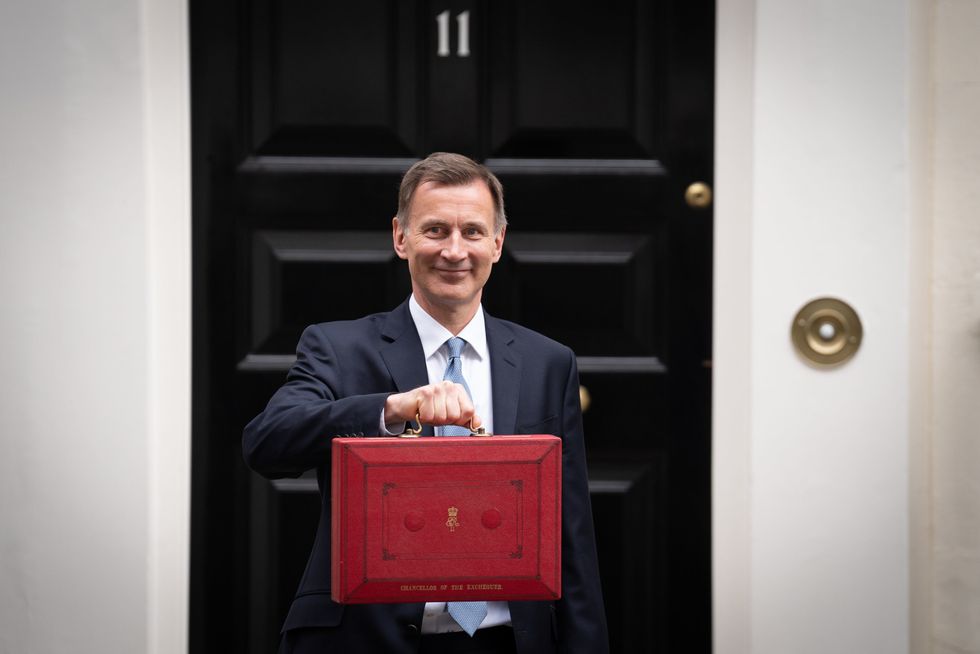National Living Wage on track to get ‘third biggest annual increase’ after stronger than expected wage growth
National Living Wage will rise to at least £11 an hour, according to Chancellor Jeremy Hunt
Chancellor Jeremy Hunt said the National Living Wage would rise to at least £11 an hour next year
Don't Miss
Most Read
Trending on GB News
Some two million low paid workers could get a greater than expected pay rise next year, after stronger than expected wage growth.
The National Living Wage (NLW) is on track to rise to around £11.46 next year, according to a new briefing from the think-tank the Resolution Foundation.
The briefing, which uses the Low Pay Commission’s methodology to calculate what the NLW could increase to next year, notes the NLW is currently linked to median hourly pay.
Strong wage growth in recent months, with average weekly earnings growing by 7.8 per cent in the three months to August, should increase the NLW’s cash value next April, it’s suggested.
WATCH NOW: Jeremy Hunt speaks to GB News from Tory Party Conference
The calculation implies the NLW would rise to £11.46 an hour next year.
It would be a 10 per cent increase in cash terms – the third largest percentage cash increase in the minimum wage during its 25-year history.
Based on the Bank of England’s inflation expectations, it would mean a real-terms increase of 6.3 per cent, with around 1.7 million workers set to benefit directly from the annual NLW increases.
The rate is currently £10.42 an hour, and this applies to those aged 23 and older.
Different National Minimum Wage rates apply to people below the age of 23.
In a speech at the Conservative Party Conference last month, Chancellor Jeremy Hunt pledged that whatever the Low Pay Commission’s recommendation for the National Living Wage next year is, the Government “will increase it next year to at least £11 an hour”.
He said it would be a pay rise for more than two million workers, worth £1,000 a year.
Nye Cominetti, senior economist at the Resolution Foundation, said the Chancellor’s pledge to increase the NLW to at least £11 an hour next April appears to be a “rare case of a politician under-promising” as the actual rate is “more likely to be around £11.46”.
He continued: “This would be a huge pay increase that will help millions of low earners as they navigate the cost-of-living crisis.
“However, a higher minimum wage alone cannot deliver higher living standards for everyone.
LATEST DEVELOPMENTS:

The amount the National Living Wage will increase to is set to be confirmed later this month
PA
"Over the past decade, cuts to working-age benefits have offset the gains from the National Living Wage for many.
"Low-paid families with children in receipt of benefits will have experienced next to no, or even negative, income growth over this period, despite their hourly pay rising by 27 per cent in real terms.
“A strategy to boost the living standards of low earners must combine a higher minimum wage with better conditions at work and a stronger social security safety net as well.”
The size of April’s National Living Wage increase is set to be confirmed later this month.








